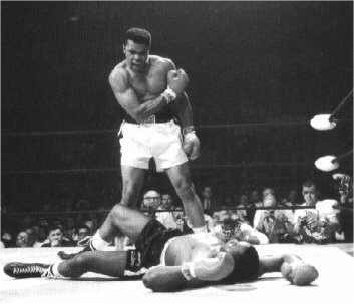Today is the 72nd Anniversary of D-Day, the biggest amphibious invasion in world history. The brave men who fought and died that day were a mix of volunteers and draftees. Whether they volunteered to go or were told by the government to report for duty, they led the way to free Europe from the Nazis.
From the comments I have received recently when wrote about the draft, it is clear the commenters don't understand how the draft works. From a very good
Wikipedia article on the subject, here is the key line on how the draft works:
From 1940 until 1973, during both peacetime and periods of conflict, men were drafted to fill vacancies in the armed forces which could not be filled through voluntary means.
The military draft is just one part of the effort to recruit soldiers, sailors airmen and Marines (This is not a typo, Marines is a proper name, the others are adjectives, very cagey on the part of Marines). Whether there is a draft or not, if enough people volunteered to serve in the military to meet the national quota, the draft would effectively end.
One of my commenters was furious at the idea that someone would take the place of a person who got a deferment, but that is exactly what happens.
Let's say the Army needs 100,000 new recruits for the year 2025. They have enough drill sergeants, enough barracks and enough equipment to feed, clothe and train these soldiers. If there is a draft, the Army recruits all the soldiers it can, then fills the rest of the vacancies with draftees.
In many countries there are few or no deferments, especially for healthy young men. But in America, deferments were rampant in the Vietnam War era. When a draftee claims a deferment, the Army reaches further down into the eligible draftees to fill that place.
So if the Army recruits 75,000 and wants 25,000 more, they will send draft notices to the top 25,000 draft eligible people. When 10,000 get deferments, the Army sends out 10,000 more notices, and so on until the quota is filled.
Whatever the excuse, whether the draftee is Amish or just too cute to crawl in the mud every deferment means the space is filled by another person. So not only does someone take the place of everyone with a deferment, but they take the place of that draftee in the first year. If, like the current Presidential Candidates, they took multiple deferments, the man who took their place went to the Army in the same year as the first deferment.
Without the draft, the Army has to change and lower it standards to fill its ranks. The only way I was able to re-enlist at 54 was because the Army raised the maximum enlistment age to 42 in 2007 and lowered it again in 2010. In 2007, the Army was desperate for recruits, so they raised the recruiting age, and lowered standards for education. I got in. If there was a draft, I would not have had a chance. An 19-year-old would have taken that place.
Recruiting is a zero-sum game. If the draft comes back and the government allows Vietnam era deferments, then poor kids will take the place of rich kids, just like during the Vietnam War. And yes, the draft is a zero-sum game. Open spaces will be filled. And they will be filled by those who have no means to avoid the draft.









